22 de enero 2021

Ortega Grants Chinese Company a Huge Mining Concession

PUBLICIDAD 1M
PUBLICIDAD 4D
PUBLICIDAD 5D
During an electoral year, under a police state and without electoral reforms, six opponents are profiled as presidential candidates in our country
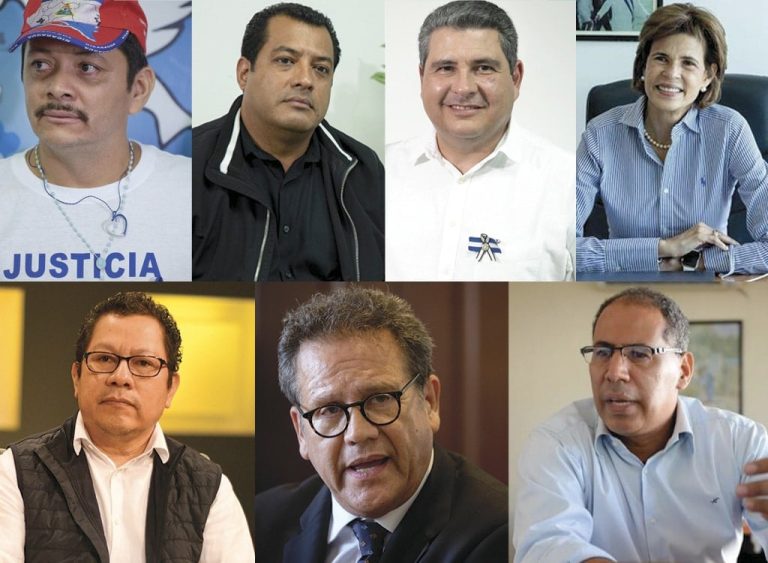
Photo: Wilfredo Miranda
Presidential elections will be held on November 7, 2021, without the minimum conditions required by the opposition to participate, such as the release of political prisoners and the restoration of democratic freedoms.
President Daniel Ortega recently declared that there will be general elections next November and that this is a "task that must be met," although he remained silent about the national and international demand for electoral reforms that would guarantee free, transparent and observed elections.
On the contrary, the Orteguista machinery has already begun an electoral campaign in which they promote the reelection of the president who has been in power for 14 consecutive years, in a country under a political, health, and economic crisis.
Last year, Ortega, who exercises absolute control over the Supreme Electoral Council (CSE), approved a network of punitive laws to inhibit the participation of opposition candidates, whom he describes as “coup plotters”, in allusion to their participation in the April 2018 Rebellion, or “traitors”, because of the support they receive from the international community. The National Police and paramilitary forces have also tried to prevent the political organization of the opposition in the territories, prescribing siege, house arrest, and harassment.
Victims of the Orteguista repression have raised their voices demanding that the opposition not participate in presidential elections that do not offer an opportunity for change in the country.
“I asked the opposition to leave behind this corrupt way of doing politics, negotiating under the table with spilled blood”, Socorro Corrales, mother of Orlando Pérez Corrales, assassinated by the Ortega dictatorship in Esteli in 2018, said last December.
Relatives of more than a hundred political prisoners called upon the Superior Council of Private Enterprise (Cosep) and opposition organizations to demand that the Ortega government release the political prisoners, as an additional condition to the Electoral Law reforms that are being demanded in view of next November’s elections.
"We are looking for all institutions to demand the release of more than 106 political prisoners, who are still in the dungeons of the Ortega Murillo dictatorship," Ruth Martínez Ortiz, sister of imprisoned opposition leader Norlan Cárdenas Ortiz, told journalists.
Last year, university leader and former political prisoner Amaya Coppens Zamora spoke on the possibility of elections, stating that they "cannot be done with political prisoners in jails.”
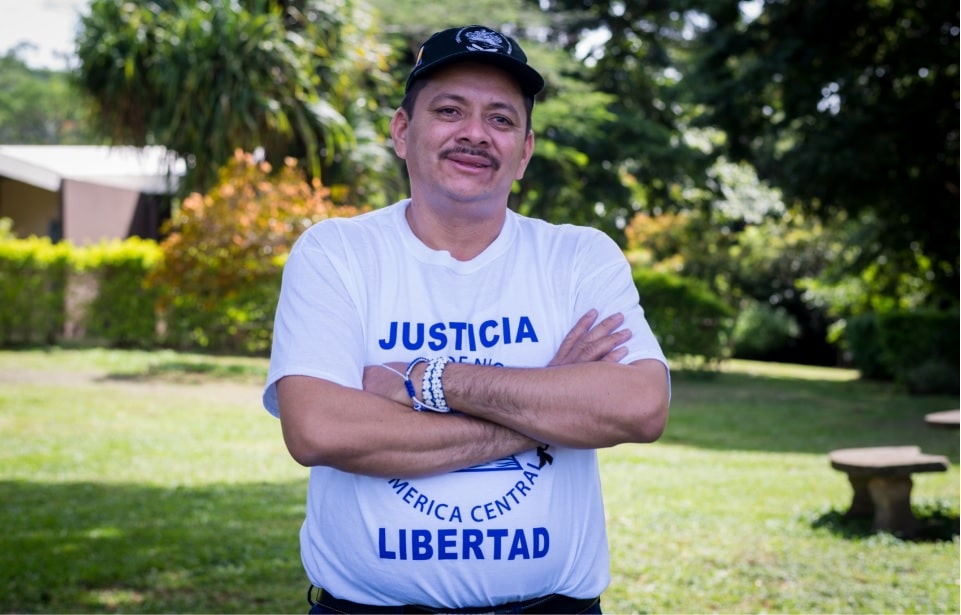
Wilfredo Miranda | Confidencial
In the CID-Gallup polls, Mairena is mentioned as one of the opposition leaders with the most favorable opinions among the population.
He is the coordinator of the Peasant Movement, which was born to defend their lands from the effects of the failed Interoceanic Canal project. However, some members of this organization are demanding a change of representative because his term has expired.
He was one of the political prisoners of the Ortega regime, condemned in the midst of a controversial trial with a lack of evidence and guarantees. He was released after eleven months of confinement, although he is currently one of more than 80 Nicaraguans persecuted every day by the police and paramilitaries.
He is currently the rotating coordinator of the National Coalition. Mairena was a councilman elected by the Constitutionalist Liberal Party (PLC) in Punta Gorda, South Caribbean, but he assures that he is not an active member of that political organization.
"One thing is to be a liberal and another thing is to be a militant in a political party. My militancy, since I began the fight in the Peasant Movement, is with the Peasant Movement," he declared in 2020.
Although he affirms that "this is not the time for candidacies," he considers that the Nicaraguan people "are ready to participate, the regime is the one that is not ready because it has not given public liberties and has not fulfilled the commitments signed in March of 2019″.
"If the decision of the National Council is to participate, then yes, of course. We have never run away from challenges, we are going to continue to stand by the people if that is the decision of the Movement and of the people; we are going to stand by the people,” he assured when asked about his possible candidacy.
He is a political scientist and is currently a member of the National Blue and White Unit (UNAB). He was the director of the Institute of Strategic Studies and Public Policy (Ieepp), which was closed in September of 2018 after the cancellation of its legal status by Daniel Ortega’s regime.
He returned to Nicaragua in September 2019, after remaining in exile for almost a year after being persecuted and accused of being the author of organized crime and financing terrorism by the Public Ministry.
He has been locked up by police under “de facto house arrest” for over a month, without any legal justification from the Ortega regime.
Recently, he declared his intention to participate in the internal process of the UNAB to become a pre-candidate for that organization, in the face of the possible election of a candidate from the National Coalition, to compete in the selection of the sole leadership of the opposition.
"From our perspective as National Unity, at this time we do not see clear conditions for truly competitive elections. As National Unity, our central concern is the freedom of political prisoners. However, we are convinced that we must not give up on demanding our right to free elections and that is why we are organizing throughout the country," he told the newspaper La Prensa.
The UNAB announced that it has completed its territorial organization in all of Nicaragua's municipalities and that in mid-February they will elect the presidential pre-candidate who will represent that organization in an opposition primary election.
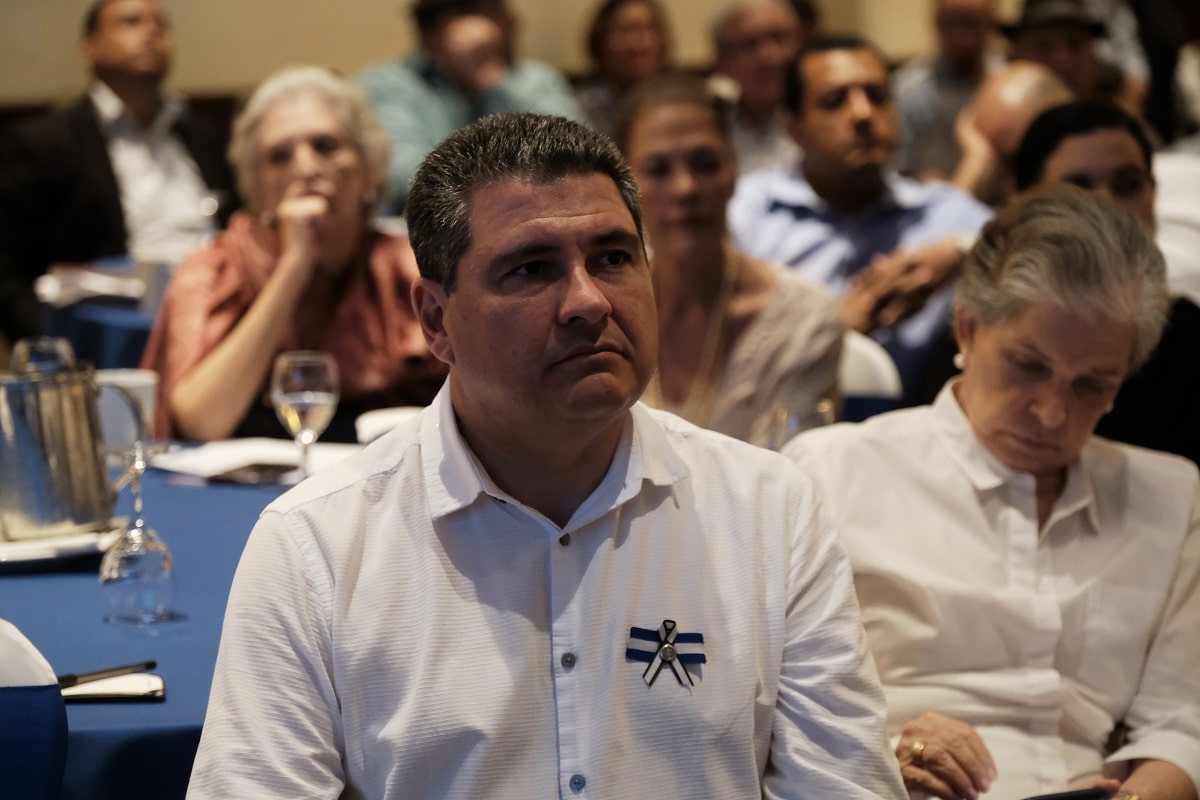
Photo: Carlos Herrera | Confidencial
He directed the Nicaraguan Foundation for Economic and Social Development (Funides) from 2014 to 2019 and was director of Cuenta Reto del Milenio in Nicaragua.
Until a week ago, the economist was the executive director of the Civic Alliance for Justice and Democracy, which emerged in May 2018, a position from which he resigned to devote himself to politics “with more freedom”.
Chamorro clarified that he decided to resign from the position because "it is a responsibility that implies many efforts in the administrative area, of coordination, leadership, and direction," but also because Article 15 of the Civic Alliance's statutes establishes that "in the event that [the executive director] makes a personal decision to dedicate himself to a political campaign, he must resign from his position.”
"I have repeatedly expressed that I have the interest, passion, and desire to devote myself to politics. I believe that it is a noble career if it is used to serve and be useful to the country; to fight for the common good, for freedom, and for change," he stated in a video.
Chamorro stressed that, before seeking a popular election position, he will work in the search for "the unity of the majority of the forces opposed to the dictatorship that share the same values, principles and fight for a democratic and free Nicaragua”.
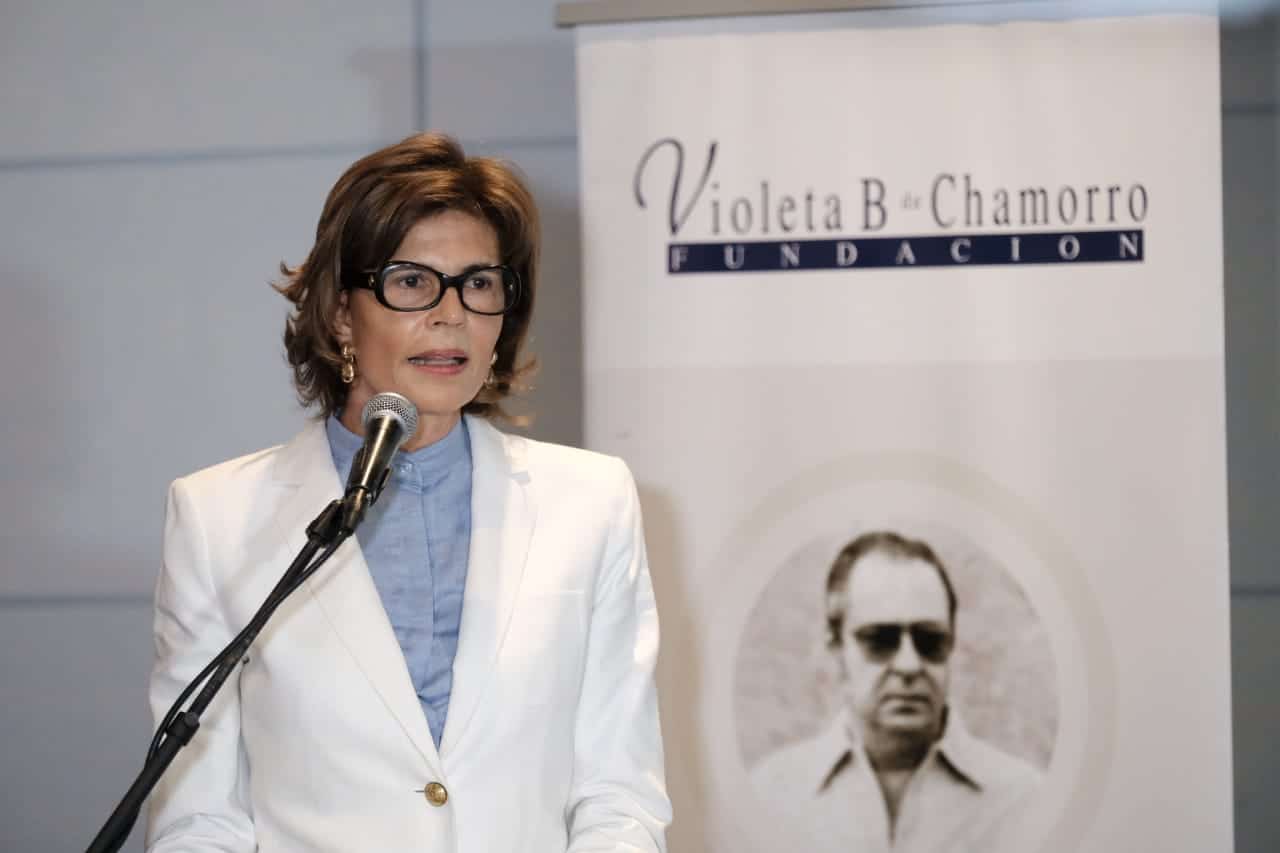
Photo: Carlos Herrera | Confidencial
edicated to the defense of freedom of expression and the promotion of democracy from her position as director and president of the Violeta Barrios de Chamorro Foundation, Cristiana Chamorro Barrios is vice president of the newspaper La Prensa.
This week, however, she announced her withdrawal from the organization founded in 1998 and insisted on the need for the opposition to concentrate on achieving unity that would press for conditions conducive to free, transparent, and observed elections.
The daughter of former Nicaraguan President Violeta Barrios de Chamorro and of Pedro Joaquin Chamorro Cardinal, martyr of Public Liberties, invoked her parent’s democratic legacy and the “nine pillars of democracy” that include “freedom of expression, free elections, no presidential reelection, respect for human rights, sustainable economic development, rule of law with separation of powers,” to bring Nicaragua back to being a republic.
In response to the questions raised by her possible candidacy for the presidency, she responded that she does not consider this to be the time to nominate candidates. "I think the first thing we must do is achieve a great unity around a consensual vision of the country," she argued.
However, in a public letter, she did not rule out the possibility of a candidacy completely. "If a greater contribution is needed on my part to defeat the dictatorship, my answer will be yes to Nicaragua," she wrote.
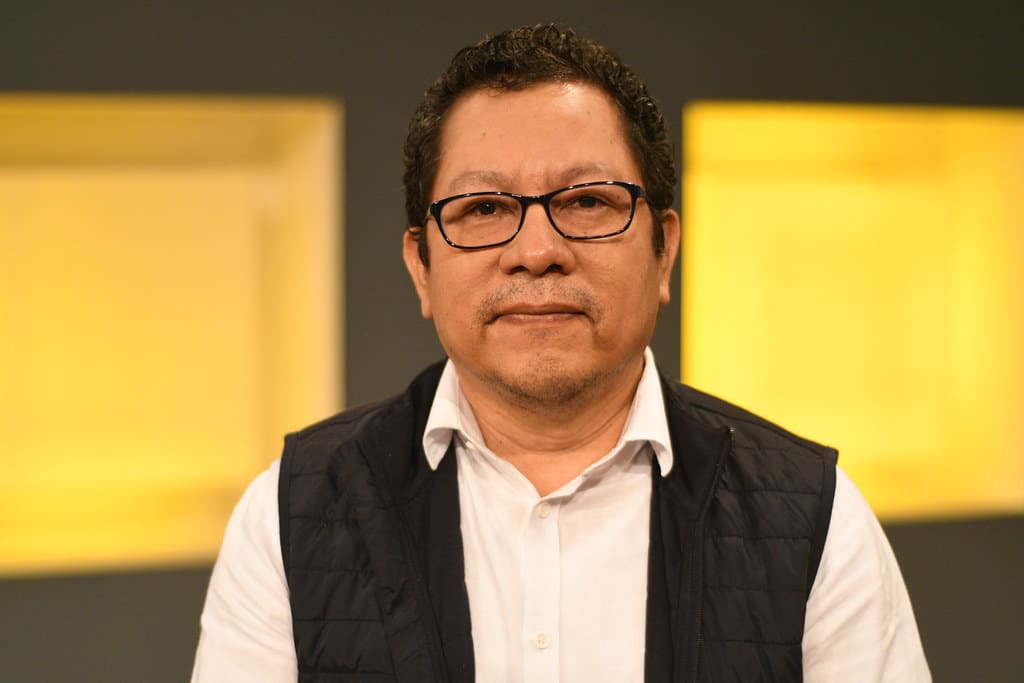
Photo: Elmer Rivas | Confidencial
He is a journalist, businessman, and owner of the 100% News Channel, which was illegally confiscated by the regime. He spent six months in prison for denouncing the brutal government repression against demonstrators in 2018 through his media.
Mora and Lucia Pineda Ubau, the head of press of 100% News, were arrested on the night of Friday, December 21, 2018 by police officers, accused of "inciting hatred" and were released on June 11, 2019 along with 54 other political prisoners. In November 2019, after their release, both journalists received the International Press Freedom Award from the Committee to Protect Journalists (CPJ).
This week, Mora made his candidacy for the presidency official, for the Democratic Restoration Party (PRD), which will be submitted to a selection process within the National Coalition.
“I have proposed my candidacy for the presidency on behalf of the PRD, and I have the support of its National Executive, Political Council and above all of the national structures of the PRD in the 15 departments and two autonomous regions, its main leaders have expressed their support for my proposal in the 153 municipal committees that the PRD has at the national level," he explained in an interview with the website Nicaragua Actual.
He declared to the newspaper La Prensa that it is clear that the current electoral conditions "are the worst, but we must run and organize ourselves to fight to improve them.”
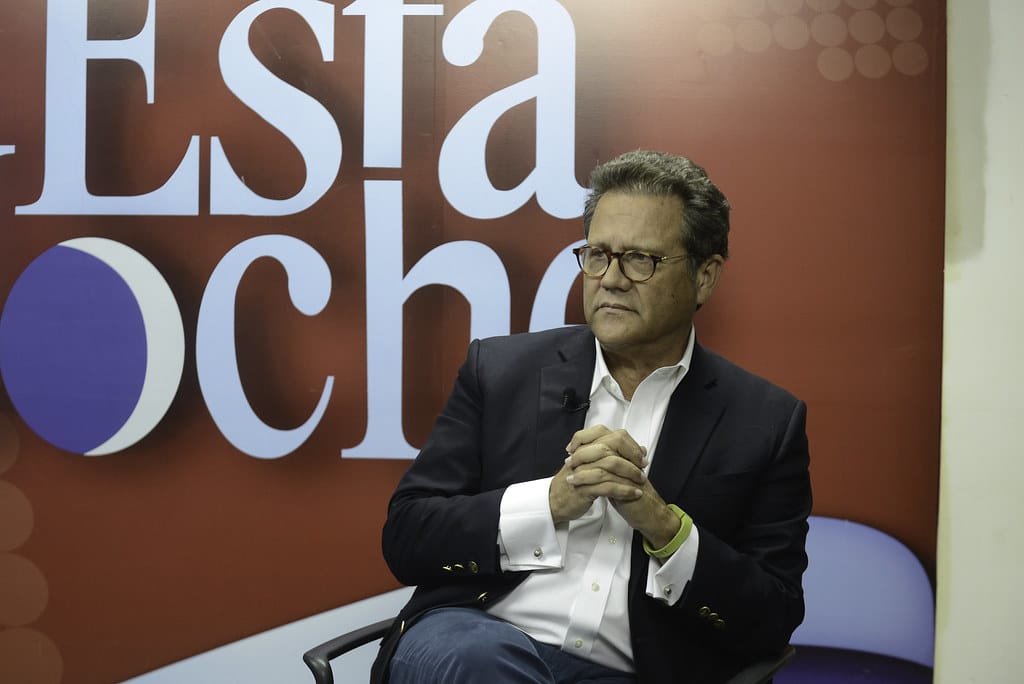
Photo: Carlos Herrera | Confidencial
A historian and political scientist, he is one of Nicaragua's most renowned academics. A prominent professor at the Incae Business School since 1994, he has been part of the Western Hemisphere Advisors Group to the Managing Director of the International Monetary Fund (IMF).
He was Nicaragua's ambassador to the United States and Canada from 2007 to 2009, appointed by the Ortega government. He subsequently resigned and returned to academic life, and in 2019 was appointed to the advisory group of the Citizens for Freedom (CxL) party.
Although he has not publicly stated his aspiration to be a presidential candidate, business sources assure that Cruz’s candidacy would have the support of major economic groups in the country and civil society.
In an interview on the Jaime Arellano program on La Nación, Cruz said that there are currently excellent pre-candidates to lead the opposition and that he does not plan to participate. At Arellano's insistence on possible opposition unity and a primary election, he said, "later on, it would be an interesting option”. CONFIDENCIAL tried to contact Cruz but did not receive a response.
In a conference promoted by Amcham, Cruz recommended that the members of organized civil society and the leaders of the CxL “get off their pedestals” in order to achieve an understanding, pointing out that this party has registered legal status "around which the UNO (National Opposition Union) of the future can be formed”.
"The regime lacks the legitimacy of origin. There is the issue of legality, but the most important thing is your legitimacy of origin, which is only given by credible elections," he said in 2019.
This article has been translated by Ana María Sampson, a Communication Science student at the University of Amsterdam and member of our staff*
Archivado como:
PUBLICIDAD 3M
Periodista nicaragüense, con dos décadas de trayectoria en medios escritos y digitales. Fue editor de las publicaciones Metro, La Brújula y Revista Niú. Ganador del Grand Prize Lorenzo Natali en Derechos Humanos.
PUBLICIDAD 3D